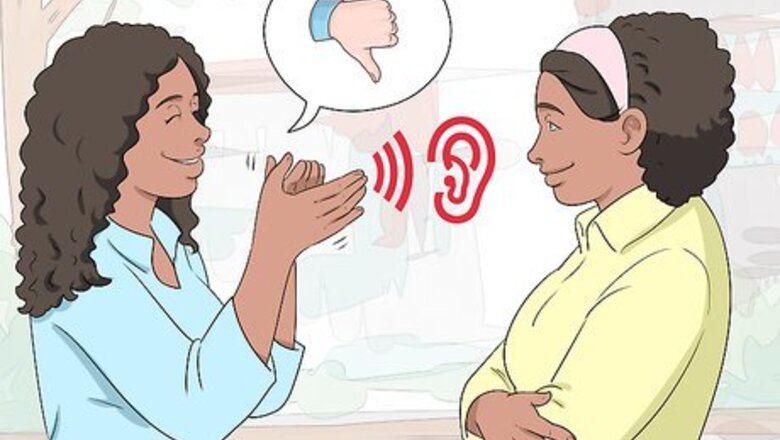
views
Listening to the Person’s Words
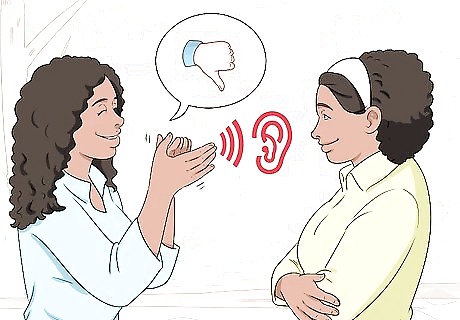
Listen for backhanded compliments. Pay attention to how the person you suspect of talking behind your back speaks to your face. Someone who talks about you behind your back is often angry or upset with you. These emotions can come through in how they interact with you, such as thinly veiled jabs or backhanded compliments. Even if the someone negates their nasty comments with a, “just kidding,” it may be that they are having trouble hiding their anger. An example of a backhanded compliment might be, “Congrats on getting in. I hear that’s great…for a state school.”

Notice if the person avoids your questions. Someone who talks about you behind your back may not want to be honest with you about their feelings. Asking the person a question or two can help you determine if they’re hiding something from you. If the person is reluctant to answer or seems as though they are lying, that may mean they have been airing their grievances elsewhere. If you suspect someone is unhappy with your performance on a group project, for example, you might ask, “Are you mad about the project?” If they avoid you or say they don’t want to talk, it’s possible they’ve been talking to others about their feelings.

Approach a trusted friend and ask if they’ve heard any rumors. Go to a friend you know you can trust and ask them if someone has been talking about you behind your back. Assure them that you will not implicate them if you confront the person who has been doing it. Let them know that you simply want to understand what you may have done to deserve this treatment because it’s hurting your feelings. You might say, “I think Lisa is talking about me behind my back. Have you heard any rumors? I wouldn’t ever tell her you told me, but I’m confused about why she’s mad at me.” It’s vital not to violate the trust of your friend who sheds any light on the talking behind your back. They are potentially exposing themselves to rumors and the anger of others by confiding in you.
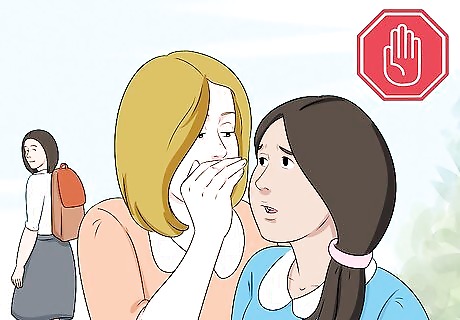
Pay attention to how the person talks about others. Someone who gossips to you about other people behind their backs also likely talks about you behind your back. If you have many friends like this, it may help to distance yourself from them if you don’t want them talking about you. The next time they try to talk behind someone else’s back to you, gently stop them. You could say, “You know, I really don’t like to gossip about other people like this. I think it’s unkind. Plus, we wouldn’t want someone doing that to us, right?”
Assessing the Person’s Actions
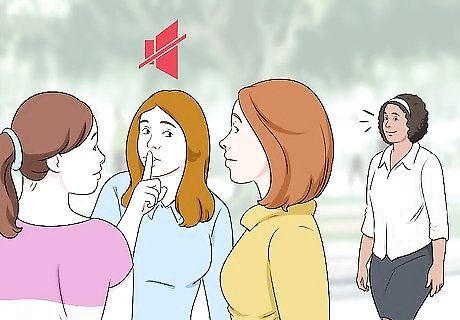
Pay attention to sudden quiet when you approach a group. Listen for a group of people that makes uncomfortable eye contact with each other and immediately gets quiet when you approach. The group may also avoid your gaze. Many people who talk behind the backs of others are too cowardly to confront the person directly about their feelings. They may feel awkward when you accidentally interrupt them talking about you.

Notice if important people treating you differently. People who talk about you behind your back may find it hard to hide their negative feelings. They may want important figures, such as your teachers or boss, to think negative things about you, too. If people with a lot of influence in your life are suddenly treating you differently, it may be that someone is talking about you behind your back to them. For example, if your boss gives your typical weekly project to someone else, it’s worth following up on.
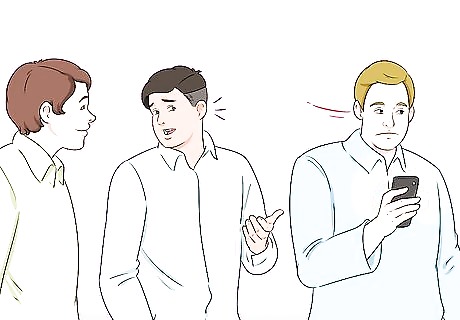
Observe if the person seems to be avoiding you. Watch for signs that the person is dodging contact with you, such as avoiding eye contact, leaving a room or group when you enter, or pretending to ignore you. Also pay attention to any electronic snubbing. Someone who usually texts or calls often who stops contact abruptly may have a bone to pick. They may be avoiding you because they feel guilty about talking behind your back, or they may be trying to telegraph that they are angry. If you’re feeling bold, test the avoidance theory. If you think you see someone talking about you behind your back in a group, stroll right up and sit down. If the offending person gets up and walks away, your suspicions may be confirmed. Doing this also sends the message that you will not be intimidated.

Pay attention to who the person hangs out with. Someone who hangs out with people who don’t like you may not like you right now either. If a former friend is cozying up to someone who they know has been mean to you, that’s a signal they may be talking behind your back. It may also be an effort to hurt you.

Keep an eye out for phone hiding. Take note of any friend who hides their phone when you come around or gets uncomfortable if you look to see who’s texting them. People who are bad mouthing you by talking behind your back may fear being found out. Hiding their cell phone around you may indicate that your friend has been chatting with others about you. Be mindful of the fact that many people don’t like it when others look at what they are texting others, whether they are talking bad about you or not. So don’t always assume they’re gossiping about you based on just this sign.
Stopping the Person From Talking Behind Your Back

Ignore the problem behavior. People who engage in unsavory behavior, such as talking behind a friend’s back, usually feel insecure in some way. If someone you know is talking about you behind your back, know that it usually means more about that person’s character than it does about yours. Try to take the high road and ignore the person doing this. You don’t have to dignify their behavior with your attention. It can help you feel reassured to hang out with trusted friends or family members you know love and care for you.
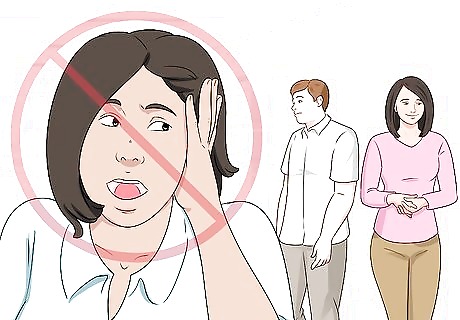
Avoid paranoia. If you feel bad about something you’ve done or don’t know a new acquaintance well, it can be easy to imagine things that aren’t actually happening. Don’t let yourself get carried away imagining someone is talking behind your back if there is no evidence to support that idea. If you’re feeling paranoid, a few deep breaths or a calming walk can help clear your head.
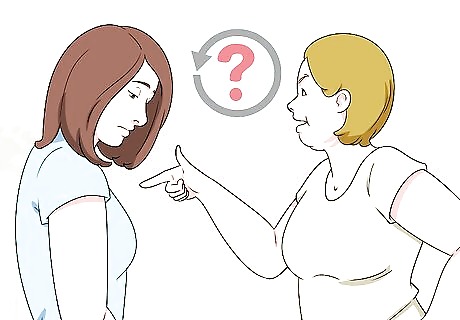
Examine your behavior. If you’re feeling guilty, it may be helpful to reflect on your behavior to examine what’s not sitting right with you. Whether you’ve accidentally hurt a friend or knowingly done something unkind, your actions may encourage people to talk about you if they feel wronged. Reflect on what you could have done differently, if you’ve done anything wrong at all. Sometimes people talk about you behind your back even when you haven’t done anything to deserve it.

Confront the person and ask to be treated with respect. If you’ve done nothing to bring on the person talking about you behind your back, you may want to stop the behavior by talking directly to them. Be honest without being cruel, even if you feel the other person is out of line. Ask that they treat you with the respect you deserve in your friendship or working relationship. You might say, “I think you’re talking about me behind my back, and I really don’t appreciate it. If you have a problem with me, let’s sort it out directly. We need to work together, and we both deserve respect. Let’s find a way to put this behind us.” Remember—the goal is to have a reasonable and open discussion with them. Focus on gathering your thoughts and feelings in a structured way to communicate with them

Tell a trusted supervisor if the behavior continues. If the other person does not stop bullying you or spreading lies behind your back, you may need to file a formal complaint against them. Whether this is with HR at your job or with a teacher you trust at your school, don’t hesitate to get help if a situation has gotten out of hand. If the rumors are really severe and malicious, they could be categorized as slander or defamation. In this case, you might be able to pursue legal action.



















Comments
0 comment